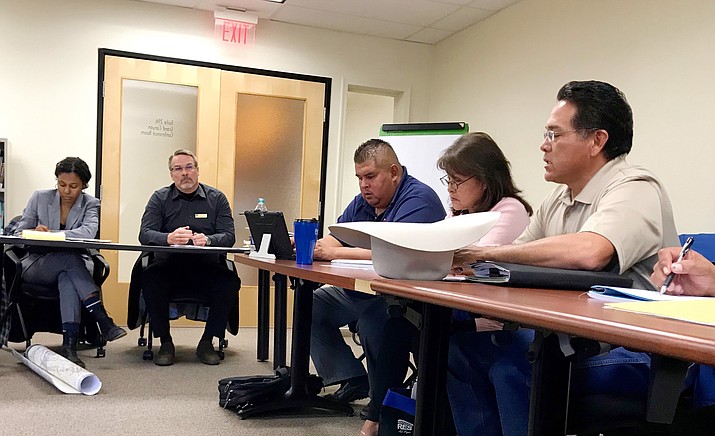Delegate Slim advocates for community involvement at Antelope Canyon
FLAGSTAFF, Ariz. — On Nov. 28, Council Delegate Tuchoney Slim, Jr. met with the National Park Service regarding concerns of activities within the Glen Canyon National Recreational Area, Rainbow Bridge National Monument and Antelope Point, all areas located near Page, Arizona.
Surrounding chapter communities including LeChee Chapter, Naa’tsis’áán Chapter, Ts’ah Bii Kin Chaper, K’ai’Bii’To Chapter, and Tonalea/Red Lake Chapter officials also participated in the meeting.
Slim, (Bodaway/Gap, Coppermine, K’ai’Bii’To, LeChee, Tonalea/Red Lake), who represents some of the Navajo communities near Page, stated that the National Park Service has failed to consult and collaborate with the surrounding chapters regarding plans and development for the recreational areas near Glen Canyon.
“I am here with my surrounding chapters who are impacted by the decisions of the National Park Service regarding our aboriginal lands near Page,” Slim said. “The communities have raised their voices and they need to be a part of the decision making process. The communities have every right to be involved through the agreements that were approved and accepted by the Navajo Nation and the Park Service.”
In 1970, the Secretary of the Interior approved a quadrilateral agreement between the Navajo Nation, National Park Service, Bureau of Indian Affairs and Bureau of Reclamation, which provides certain rights and responsibilities between the parties relating to the development, maintenance and management of Antelope Point.
Additionally, the Navajo Nation has three memorandums of agreement with the National Park Service, Bureau of Indian Affairs and the Bureau of Reclamation relating to the use and development of Glen Canyon National Recreation Area and adjacent lands, Antelope Point and Rainbow Bridge.
“The agreements were projected to ensure that Navajo economic opportunities would be protected to bring revenue, jobs and economic development, however, the surrounding communities disagree with the National Park Service decisions regarding the parks,” Slim said.
The National Park Service stated that the 1970 quadrilateral agreement will expire in 2020, however, they want to work collaboratively with the Navajo Nation and Navajo chapters to create a new agreement that captures the best interest of the surrounding communities.
During the meeting, LeChee Chapter vice president JoAnn Yazzie-Pioche said the chapters are frustrated with the plans that are being developed and approved without the proper consultation by the National Park Service. The Park Service and Navajo Nation central government who are involved with the negotiations regarding the creation of the new agreement, must strongly consider the local communities’ input and recommendations that are personally and negatively impacted by the previous agreements, added Yazzie-Pioche.
At the end of the meeting, all parties agreed to work collaboratively on the establishment of the new agreement. A follow-up meeting with the National Park Service is scheduled for February 2019, and LeChee Chapter will host an educational session for chapters and community members regarding their concerns Dec. 13 at 10 a.m. at LeChee Chapter.
Information provided by Office of the Speaker
SUBMIT FEEDBACK
Click Below to:




